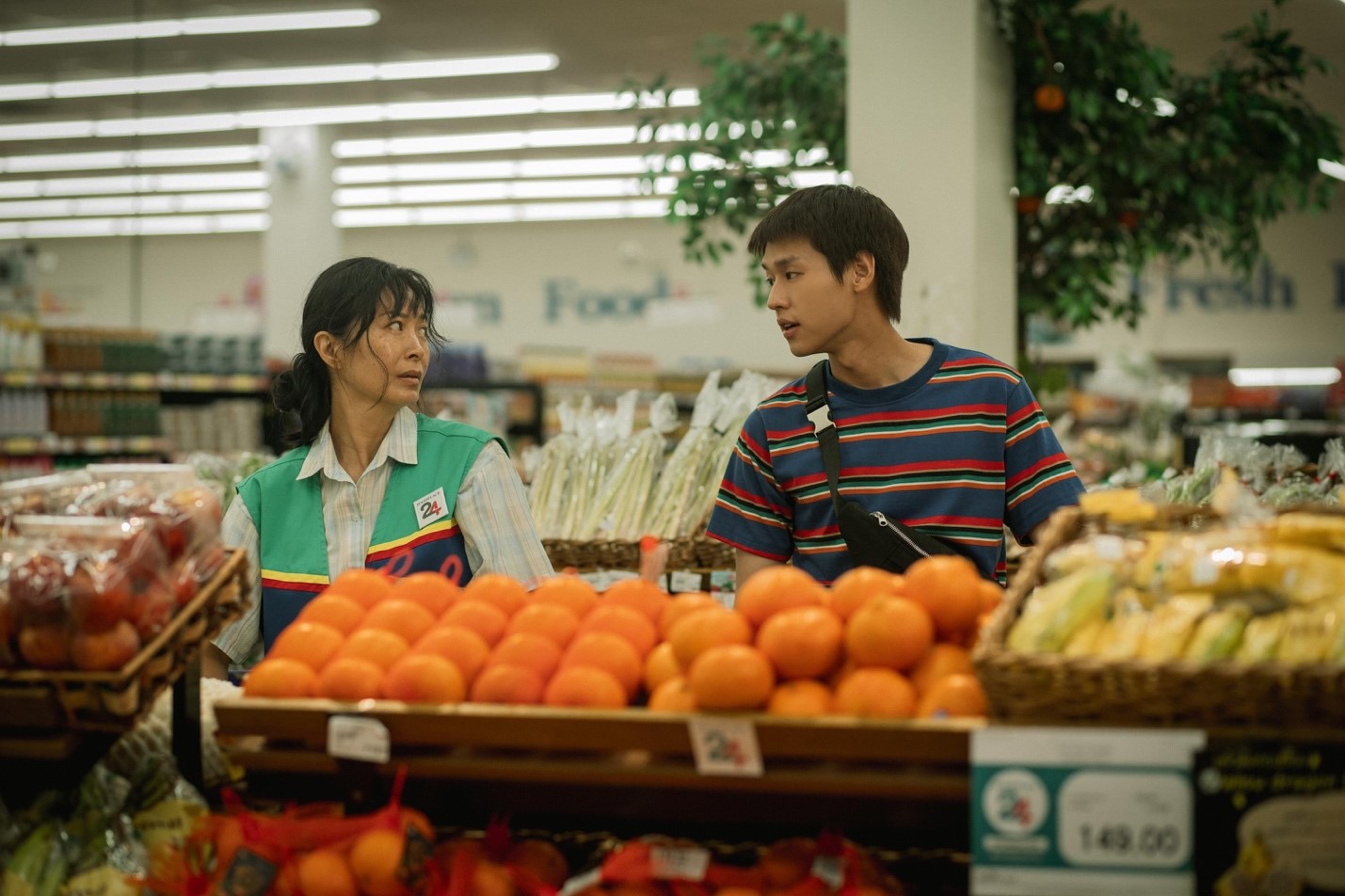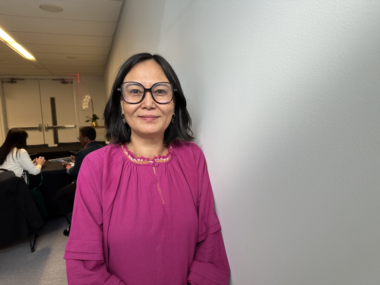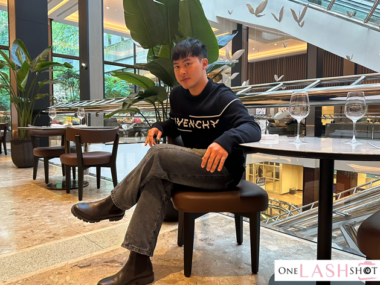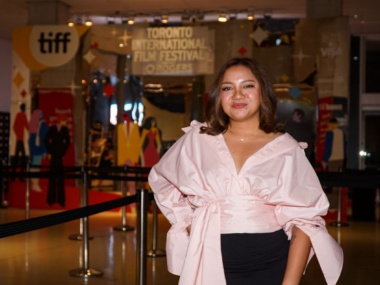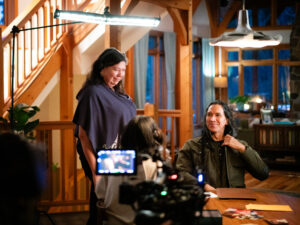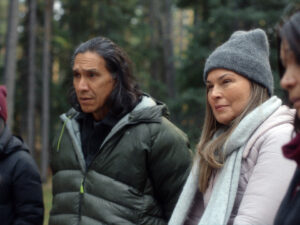Actress Sarinrat Thomas is renowned in the Thai film industry.
Known for her roles in an array of popular Thai projects like Bad Genius (2017) and Hormones (2013-2015), she has not just made her mark as an actor, but also as a drama therapist and acting coach.
Following multiple collaborations with the GDH film studio, she played the role of M’s mother in How To Make Millions Before Grandma Dies which is co-written by Pat Boonitipat and Thodsapon Thiptinnakorn.
In Lahn Mah, M (Putthipong), a university dropout seeking money, offers to care for his dying grandmother (Usha) in order to receive an inheritance. His mother (Sarinrat), struggles tirelessly to make ends meet, while simultaneously being the dutiful daughter and mom, causing her to traverse along the emotional highway.
One Lash Shot had the opportunity to speak with Actress Sarinrat Thomas about the behind-the-scenes of How To Make Millions Before Grandma Dies and the impact of drama therapy  on her acting career.
on her acting career.
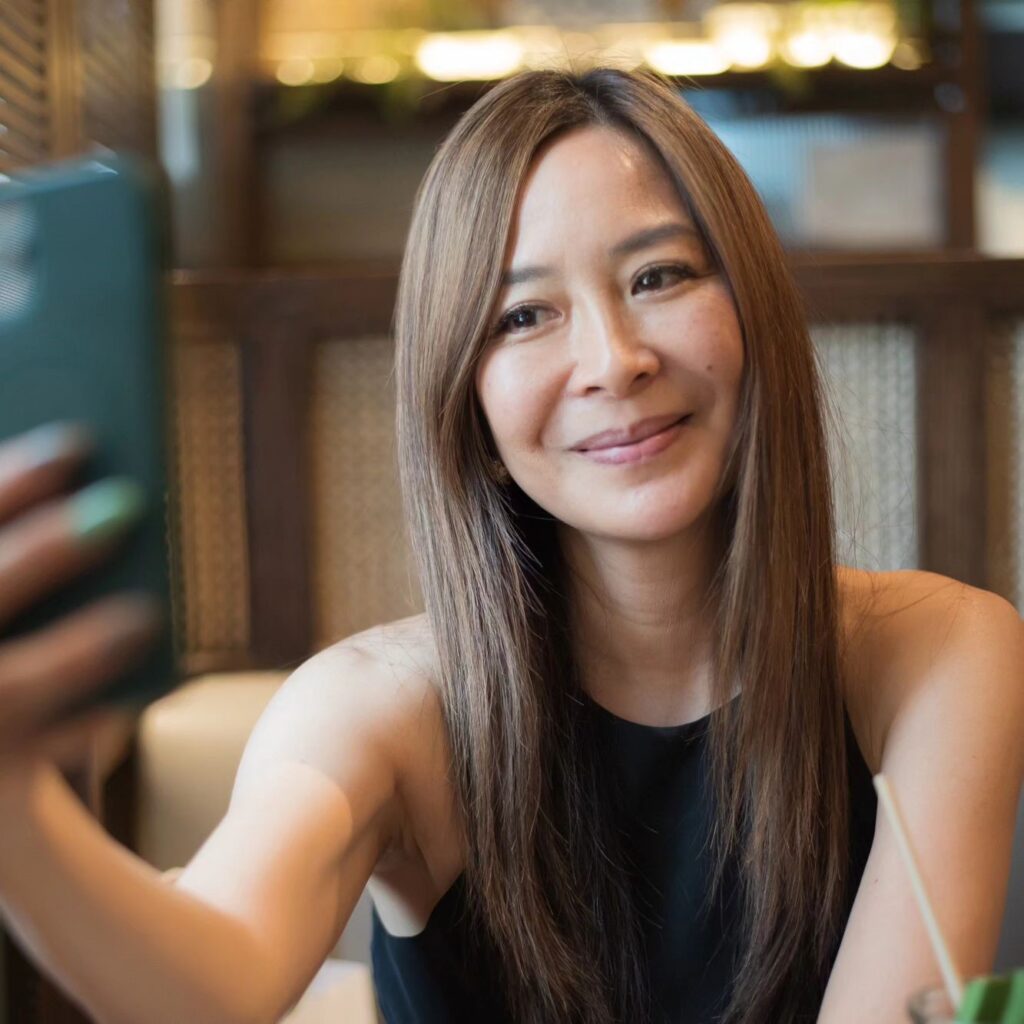
You are not just an actress, but also a drama therapist and psychotherapist. If I am right, the TV part came first. How did you get into drama therapy and how did it influence your career as an actress who could delve deep into psychological traits?
My paid job was actually as a TV presenter/announcer/news anchor. But I think the acting and drama therapy came from when I was at university. I was forced by my friends to go to the theatre auditions because in my faculty we had annual theatre shows and things like that. So, I accidently got into acting. Some people who came to see me at the theatre quite liked my audition, so they asked me to try auditioning for this and that. Before that, I had experience as a volunteer in community theatre. So, it’s a jigsaw really.
When I came to work as a TV presenter, one of the TV shows that I had a big responsibility towards was hosting a TV segment on mental health and well-being. I come from a family where I experienced a bit of challenges and adversity.
While listening to all those psychological professionals talk, I realized that I liked that more than being in front of a camera. I really wanted to do it.
I didn’t know what drama therapy was then. But I just searched ‘art’, ‘drama’, ‘theatre’, ‘healing’, and it came up with the word ‘drama therapy’. Funny enough, I am quite crazy. My career in TV was very good back then, it was taking off, and well-known people were getting to know me, but I just resigned from all that. Then I went to the UK in 1998 to study drama therapy. At that time, I worked for 1-2 years and went back to Thailand.
When I do community theatre, I see a lot of people like those who are underprivileged. They’ve been through so much. That’s what gives me the drive and passion to try.
Acting is very accidental (laughs).
Which is your favourite movie of all time?
The Big Blue by Luc Besson. It’s one where the guy is a free diver because he loves the feeling and nature of it. He’s quite a lonely soul. I had never seen the actor before, but for me, it’s beautiful as it talks about human beings.
You’ve acted in Bad Genius, Hormones and now How to Make Millions Before Grandma Dies. Which is your favourite role among your acting works?
I have to say Lanh Mah. The reason might be a bit different. It might not be the best role I ever got. Actually, the best role I got was in a short film where I played a schizophrenic and I really liked it, because it allowed me to experiment and research.
But for Lanh Mah, it’s different. I moved to England in 2018, so this is the first acting role that I am going back and shooting in Thailand. For me, it’s a beautiful story, because Pat, the director, saw me many years ago in one of the famous Thai series called Hormones. He was in charge of capturing behind-the-scenes footage at the time. He remembered me and liked me enough. So, when the script was ready, he didn’t think of anybody except me for this role.
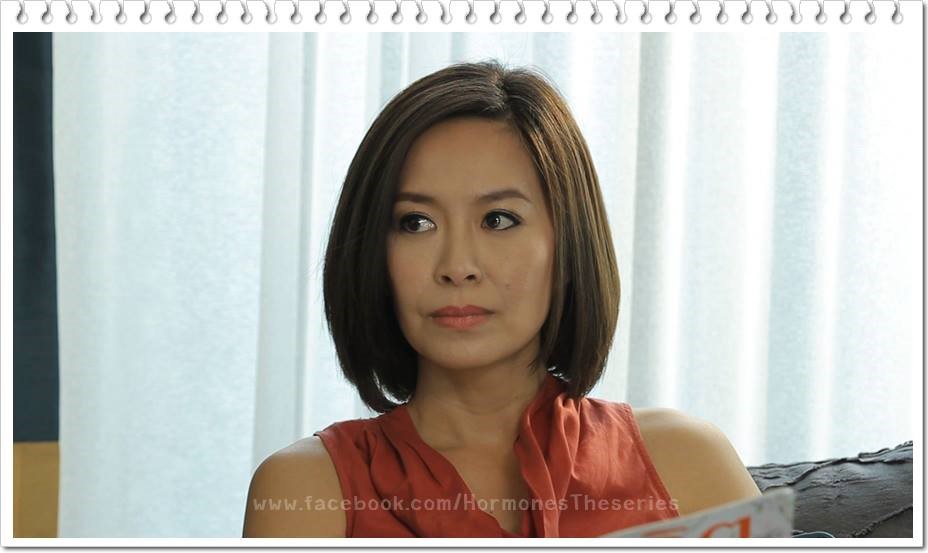
For me, I think the background story of how I ended up with this role, makes it the favourite role for me.
I am Thai Chinese. In Thailand, if you ask my dad, he’ll tell you I’ve got no Thai blood in me. But I still have a doubt, because although I was not close to my mom, it’s possible her ancestors could be Thai. It reminds me of similarities and differences, sometimes it’s parallel to my life.
A few months before shooting this film, my mom passed away. I didn’t get to go for her funeral on time, because her family did a quick 3-day funeral. In this movie, they have a funeral. I am not bringing my life into work or anything, but this was a weird experience of experiencing a funeral on reel, but not in real life.
This role gave me something more than I expected.
You played M’s mother in this movie. You did a similar thing with Hormones as well. How did you prepare for this role?
I didn’t prepare anything at all! When I read the script, I only target remembering the script. It’s embarrassing if you can’t remember the script, especially if you’ve got the script beforehand. So that’s what I do. I don’t prepare anything else.
But what they had to prepare was that when I arrived in Bangkok, I had fake eyelashes (laughs)! Not like the big one, but a natural-looking one! I got the thick eyebrows and light brown hair. So, they changed my eyebrow to be thin one line, similar to the Chinese. All lashes out. My nails were changed as well and I forgot to clean them before I left UK. Everything had to be prepared to look different. A lot of grooming was done.
When I sat down for make-up it made me even more tired. I looked tired! Something that I think is quite wonderful is that my hair in this film looks untidy as if I am tying my hair without thinking about it. To make it look like that, it’s not just about you just tie your hair like this.
We had a bit of a workshop where me and grandma together worked on the scene; like there’s a fridge here, how we are going to interact and things like that. But never had we done acting beforehand.
And Pat’s style is not like “Oh, you are going to have to act like this” or whatever.
So, for acting, I didn’t prepare anything.
What was your experience like working with Billkin, Usha and the rest of the cast and crew?
I know that this maybe typical where actors say “Oh, I enjoyed it! “, but behind the scenes that’s not the case. But actually, with this team, I was so lucky because the cast and crew were so lovely.
Billkin is a superstar in Thailand. Actually, across Asia as well. But he’s lovely. And his mom is only a couple of years older than me! The funny thing about Billkin and me is that when the team asked me to find my old photos for props, I saw a picture where I looked just like Billkin!! And I sent it to Pat, and he just sent me the shocked emojis and was like you like just like him!
Billkin’s real mom actually studied in the same high school as me. We were in the same colour- pink- like for sports day etc. we both were cheerleaders. So Billkin and I did talk about all our past connections.
He is lovely because when I first met him, he had no air about him like that of a superstar or diva. He was quite open to this process.
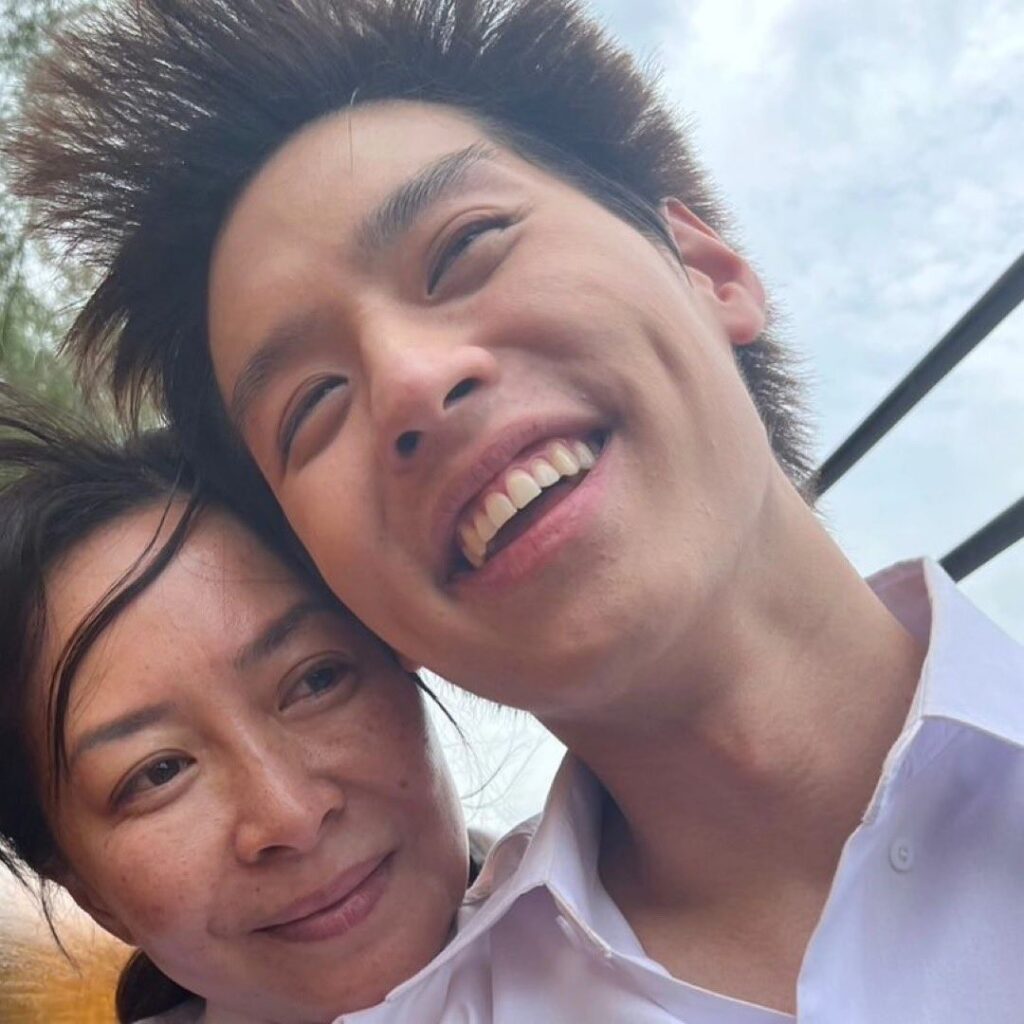
For Usha, I like talking to older people anyway, so when I worked with her, right at the beginning when we did the first scene together, I realized that although she’s not the best actress I’ve ever seen, she was truly the only one for this role. I did tell Pat before that if he had got an actress who was probably more famous or had tons of acting experience, it wouldn’t have been this believable. I think she is really born to play this role of Amah.
As a drama therapist, which was the scene in the movie that you would think was hard to deal with for the character you played? Like in the shoes of the mother.
Maybe in the pool. The scene where I try to give my mom the exercise she needs in the swimming pool, as per the doctor’s suggestion.
It’s not too complicated, but as a drama therapist, I have come across people who have some really strong traumas or sadness within them. They try to keep it within themselves so much, that they become depressed because of it.
I think for me, even though it seems to be the small things that Grandma gets upset about, my thought process was something like “Why do I do good things for you, but it seems to be not good enough for you; why you still complain, I just want to support you, I don’t mind if I am going to be tired or not, I just want to do it. Doing that makes me feel good.”
As a drama therapist, I saw many people who perhaps experienced this as a single part of their life, but that’s enough when topped up together every single day, to become a trauma that leads to depression. When they have to deal with things every day. Every time my character sees her mother, she thinks “Why are you always comparing about me? Why can’t you accept me?”
Which was your favourite scene in the movie?
I like the scene where he is talking with the bank while walking on the railroad. And the train just passes and he looks back. It not just sums up everything, but it’s beautiful! It shows the relation between both of them. She actually feels so much for him and plans so much for him, keeping her promise to him, since he was very young. And that shows a lot about the grandmas/grandpas, especially in that generation, right?
Do you believe grandparents should invest in their grandkid’s future (like the bank deposit started by Mengju for M when he was a kid), implying that the duty towards your kids doesn’t just end when they grow up?
I think it depends on the family. And at the end of the day, if it’s not willingly done without pressure, then there is no point. If you look at the characters of the people in each family, you have to wait a little bit. Is money or words better? In some situations, money works better than words. Maybe the kids who are not willing to fight for themselves or work hard, they might think it’s not necessary anymore. It’s down to each family really, but I am sure everybody will contribute in some way or another. At the end of the day, in terms of the younger generation, it’s like a bonus rather than this is it kind of situation where there’s no need to do anything anymore.
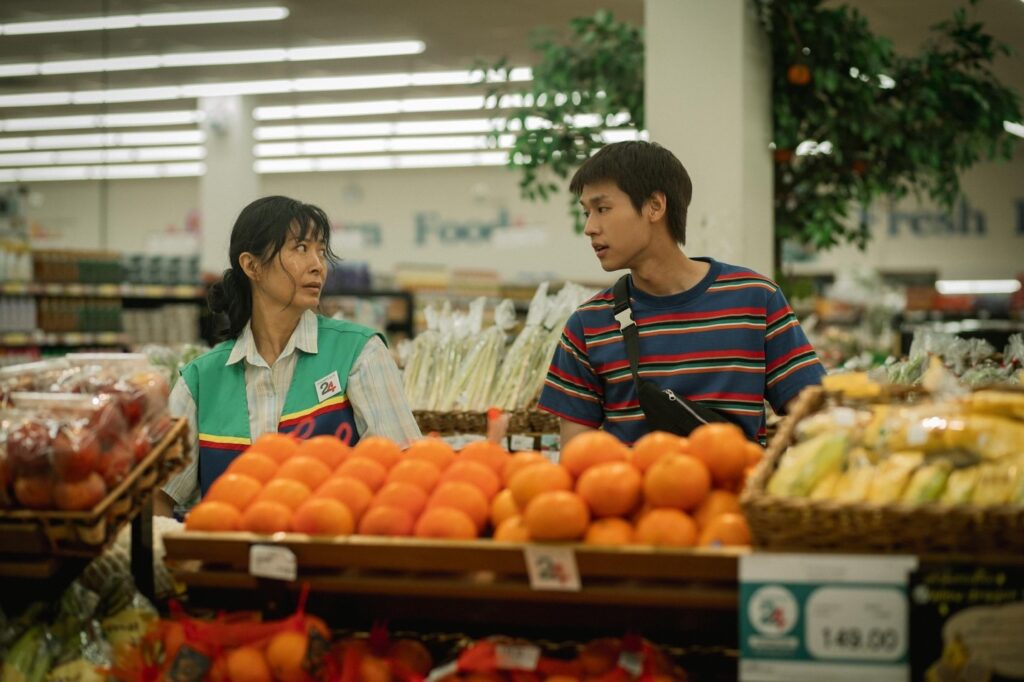
What’s your opinion on caring for family members except maybe your kids? Do you think it’s possible to care expecting nothing in return?
We are now in a time where the younger generations say different things like it’s not our duty to take care of our mom and dad only because they raise us up. But, for me, I also think it absolutely depends on finally and family situations.
I grew up without a mum and my mum left me when I was young. She left— like packing up everything and leaving in front of me. So, I don’t have a relationship with my mum like that.
When I got older, one of my uncles from my mom’s side, saw me on the TV where I gave an interview about my work, drama therapy and everything. He put my number down in his notebook, just in case. So, a few years ago before my mom passed away, she had a car accident. My uncle called me and told me that it was up to me if I wanted to see her or not. I didn’t actually have a relationship with her, but I chose to go because I could afford to help another person, in this case, my mom. I went to see her and looked after her and I brought her to stay in an apartment near my house in Bangkok. But then she left again. When she got better, she left again. I looked after her until the day she died.
For me, I would say caring is dependent on different situations. Sometimes you care by physically looking after them or sometimes you pay for someone to look after them or sometimes you send the money. I think at the end of the day it’s not about should or should not. It’s about your own view. It’s not a duty. Your parents look after you and it’s up to you if you want to look after them. It’s how you feel about it.
What makes you feel ok? What makes you feel good? What makes you feel that one day when I look back, I made the right decision?
For me, I feel good that I did my best to look after the person I called mum. I expected nothing in return. You can’t expect anything from my mum, she is a person who would not give but just take. Unfortunately, that’s her character.
You really have to empower yourself, thank yourself and be proud of yourself. Nobody can make me upset in whatever small or big way, because, at the end of the day, I know I am beyond the mere words of other people. Of course, you want your work to be heard and seen as an actor, but what’s important in creating value in my life is that I do my best in everything I do. Everyday. That’s what matters more than what other people think. We all should be proud of ourselves—it makes us tough; I think.
What would be your advice as a psychotherapist/drama therapist to people who are coming from such backgrounds? Even in the movie, you play the mother who had a very hard life. How do you overcome such situations personally?
In the movie, the grandmother does hint to me as her daughter about who she loves the most, that she wants to be with me. She loves me enough although there aren’t many compliments.
At the end of the day, advocate for yourself. If it’s not fair for you, you need to talk. We always have many roles in real life— daughter, wife, mother, teacher, psychotherapist or drama therapist or whatever.
We might not necessarily feel comfortable or fair about it when confronted with some adversities or challenges. But you have to advocate for yourself and speak when it’s not fair. I think my advice would be to speak up for yourself. You have to really care about yourself before you can care for other people.
What are your thoughts on the movie being Oscar-shortlisted?
First time ever, right? I think we knew that the movie was going to be good but we didn’t think it would be this well received. When the movie came out, some of my fans said, “I want this movie to go all the way to the Oscars!” I remember when I looked at the word ‘Oscar’, I was like ‘Wooww’, they dream big! Now that we are on the shortlist, it’s unbelievable.

It’s like art. When we walk into the gallery, it’s not necessary that Lanh Mah is like “Oh my God! This is one of the best arts I’ve seen, painted by the biggest artist in the world.” But it depends, you know, it just happens to people who go to see, feel and have a connection with that art. I think for me the message and connection are bigger than anything.
But having said that, if we go in the final five, it’ll be mad! Thailand will go wild!
In your opinion, what’s the most complex emotion portrayed in your career?
It goes back to the role when I played a schizophrenic.
When I worked as a drama therapist, I used to work with different individuals. Because it’s so complex and the way they don’t show emotions at all. They have thoughts inside, but they don’t show emotions at all externally. But they feel something. Though it’s something where you don’t know what it is and it is so unpredictable, I think that’s the most complex for me. That’s why I really want to do the role where I do this psychotic psychosis. I want to do that again! It’s hard to portray such a complicated emotion!
What surprised you most while shooting this movie or maybe after that?
I think how I really feel connected with everyone. All the brothers in the movie- it’s not like every single one of the cast members became a close friend. But, when we were shooting, when we were inside the scene to do the shooting, I didn’t feel like I was doing any acting at all! I felt like I talked to you like this before, like every day— it was so dynamic and real.
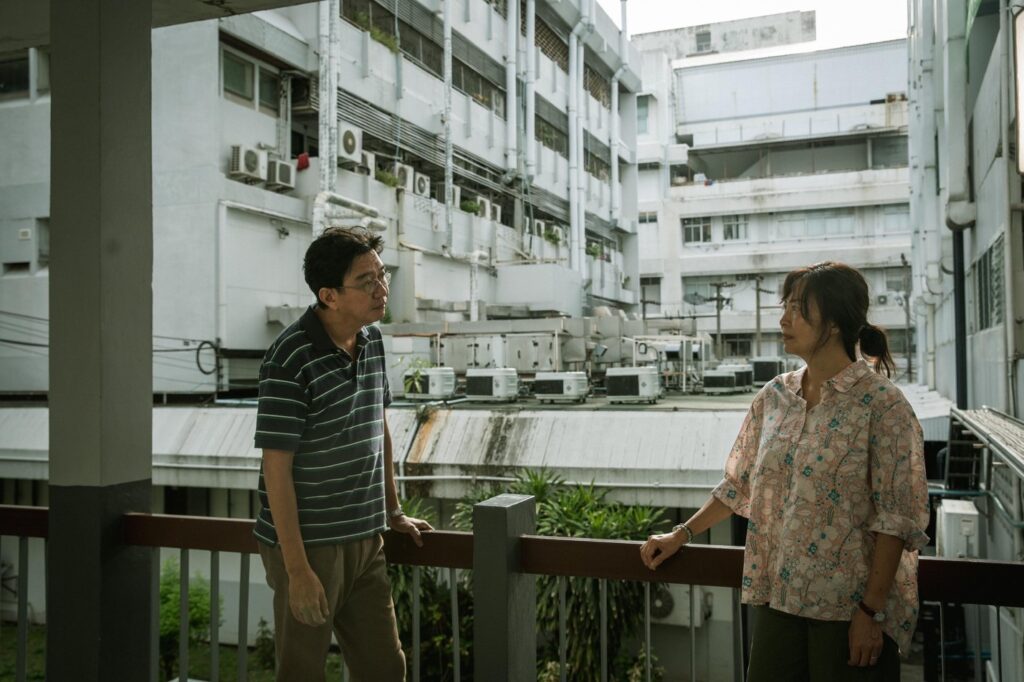
Every single time I work, I never go back and watch the movie. Lanh Mah is the only production I’ve seen because I went for its premiere. It’s the only work I’ve ever seen of mine! When I watched it, I felt that I wouldn’t change anything I did, it was the way it had to be.
What’s next for you?
I still do drama therapy every single day. I want to do more and help a wider community. Like when a Singaporean fan of mine reached out to me and I got a chance to speak to medical professionals there. I hope to contribute to being a voice for mental health.
In terms of acting, I hope that I will have a chance to act here in England as well!
[Author’s Note: Special thanks to the amazing Sarinrat for being a never-ending inspiration, whether as an actress or as a drama therapist!]

